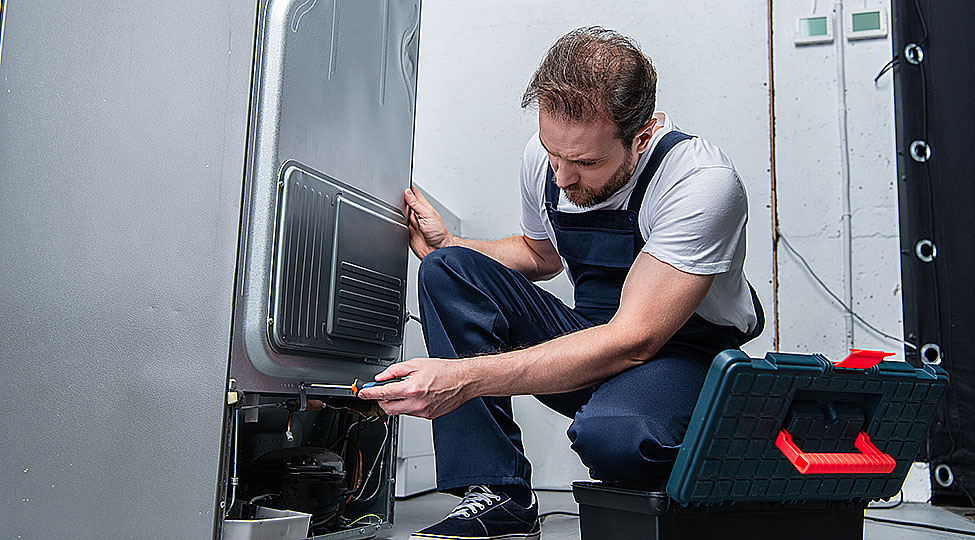As seasons change, ensuring a comfortable indoor environment becomes a top priority. Whether it’s providing warmth in the winter or cooling relief in the summer, heating, ventilation, and air conditioning (HVAC) systems play a vital role in our daily lives. One critical aspect of maintaining this comfort is addressing any issues promptly, which often calls for services such as heat pump repair. But beyond repairs, there’s a lot to understand about how these systems work, the technology behind them, and the importance of proper maintenance.
What Is HVAC and How Does It Work?
HVAC stands for heating, ventilation, and air conditioning, each component serving a unique purpose. Heating refers to any system that generates warmth to increase indoor temperature during colder months. This can be accomplished through furnaces, boilers, or heat pumps. Ventilation, the next component, ensures that fresh air circulates within enclosed spaces, preventing the buildup of indoor pollutants, allergens, and moisture. This aspect of HVAC is crucial for maintaining healthy indoor air quality. Finally, air conditioning cools down spaces in warmer weather, creating a comfortable environment even during extreme summer temperatures.
Types of HVAC Systems: Finding the Right Fit
There are several types of HVAC systems, each catering to different building sizes, climate needs, and efficiency preferences. Central air systems are one of the most common, combining a furnace or heat pump with an air conditioning unit. This setup distributes warm or cool air throughout the building using ductwork. Ductless systems, on the other hand, provide targeted heating and cooling without the need for ducts. They’re ideal for homes or buildings where installing ductwork is impractical or for specific rooms that require independent temperature control.
The Role of Heat Pumps in Modern HVAC Systems
Heat pumps have gained popularity for their energy efficiency and versatility. Unlike traditional heating systems that generate warmth by burning fuel, heat pumps work by moving heat from one location to another. In heating mode, a heat pump extracts warmth from the outside air (or ground) and transfers it indoors, while in cooling mode, it does the opposite by removing heat from the indoor air and releasing it outside.
This method makes heat pumps extremely energy-efficient, as they don’t produce heat but rather move it around. However, they do require regular maintenance and occasional repairs to operate effectively. Heat pump repair is essential, especially when dealing with issues like refrigerant leaks, compressor failures, or electrical problems. Regular servicing can extend a heat pump’s lifespan, ensure it operates at peak efficiency, and prevent costly breakdowns.
Ventilation: The Unsung Hero of Indoor Comfort
While heating and cooling get most of the attention, ventilation is a vital but often overlooked aspect of HVAC systems. Proper ventilation is essential for maintaining indoor air quality and balancing indoor humidity. Stale air, excess moisture, and harmful pollutants such as volatile organic compounds (VOCs) can accumulate in enclosed spaces, causing potential health issues and discomfort. By allowing fresh air to flow in and out, ventilation systems help maintain a balanced, breathable environment indoors.
The Importance of HVAC Maintenance
Like any other mechanical system, HVAC systems need regular maintenance to function properly. Routine maintenance keeps the system running efficiently, reduces energy consumption, and extends its lifespan. Regular tasks include changing air filters, checking refrigerant levels, inspecting electrical connections, and cleaning various components. Filters should ideally be replaced every one to three months, depending on usage and indoor air quality requirements. Dirty or clogged filters restrict airflow, making the system work harder and consume more energy.
Preventative maintenance also helps detect potential issues early, allowing for timely repairs before they escalate into major problems. For instance, if a refrigerant leak in an air conditioner or heat pump goes unnoticed, it can lead to compressor failure, a costly repair that could have been avoided. Some HVAC companies offer maintenance contracts, providing regular check-ups to keep the system in peak condition throughout the year. These contracts are beneficial, as they ensure that a qualified technician inspects the system, identifies potential issues, and addresses them promptly.
The Future of HVAC: Energy Efficiency and Sustainability
As the world continues to focus on sustainability and reducing carbon emissions, HVAC technology is evolving to meet these demands. Modern HVAC systems are designed to be more energy-efficient and environmentally friendly. Many new systems incorporate renewable energy sources such as solar power, which can be used to run certain components of an HVAC system. Heat pumps, too, have seen improvements in their ability to operate efficiently in colder climates, expanding their usage to regions that once relied solely on traditional heating methods.
Another advancement in HVAC technology is the development of smart thermostats and controls, which allow users to regulate temperature remotely and adjust settings based on occupancy. These smart systems not only improve comfort but also optimize energy use by learning the habits of occupants and making adjustments accordingly. The shift toward smart, energy-efficient systems is not only reducing energy costs for homeowners and businesses but also lowering the environmental impact of HVAC systems on a larger scale.
In addition to energy savings, these smart controls can integrate with other HVAC services, like furnace repair services Arlington, to detect and alert users to potential issues before they become major problems. The shift toward smart, energy-efficient systems is not only reducing energy costs but also lowering the environmental impact of HVAC systems on a larger scale.
Common HVAC Issues and How to Address Them
Despite advances in technology, HVAC systems can still experience problems that require professional attention. Some of the most common issues include refrigerant leaks, thermostat malfunctions, and poor airflow. Refrigerant leaks are often caused by wear and tear or damage to the refrigerant lines, resulting in reduced cooling efficiency. Malfunctioning thermostats can lead to uneven heating or cooling, as they fail to accurately control the system. Poor airflow, meanwhile, could be due to clogged filters, dirty coils, or blockages in the ductwork.
If your HVAC system starts exhibiting unusual noises, inconsistent temperatures, or reduced airflow, it’s best to contact a professional for a thorough inspection. Attempting to fix complex issues without the proper knowledge and tools can sometimes do more harm than good, potentially leading to higher repair costs. Many HVAC companies offer emergency repair services, ensuring that problems are addressed promptly to restore comfort and prevent further damage.
Conclusion
HVAC systems are integral to maintaining a comfortable and healthy indoor environment. From heating and cooling to ensuring proper ventilation, these systems work tirelessly behind the scenes to enhance our daily lives. Understanding how HVAC systems operate and the importance of regular maintenance can help homeowners and business owners make informed decisions, ensuring that their systems run efficiently and last longer. When issues arise, whether it’s a minor repair or a full system replacement, seeking professional assistance is crucial. With reliable HVAC companies Tyson’s Corner, you’ll have the peace of mind that your system is in capable hands, ensuring consistent comfort for years to come.



